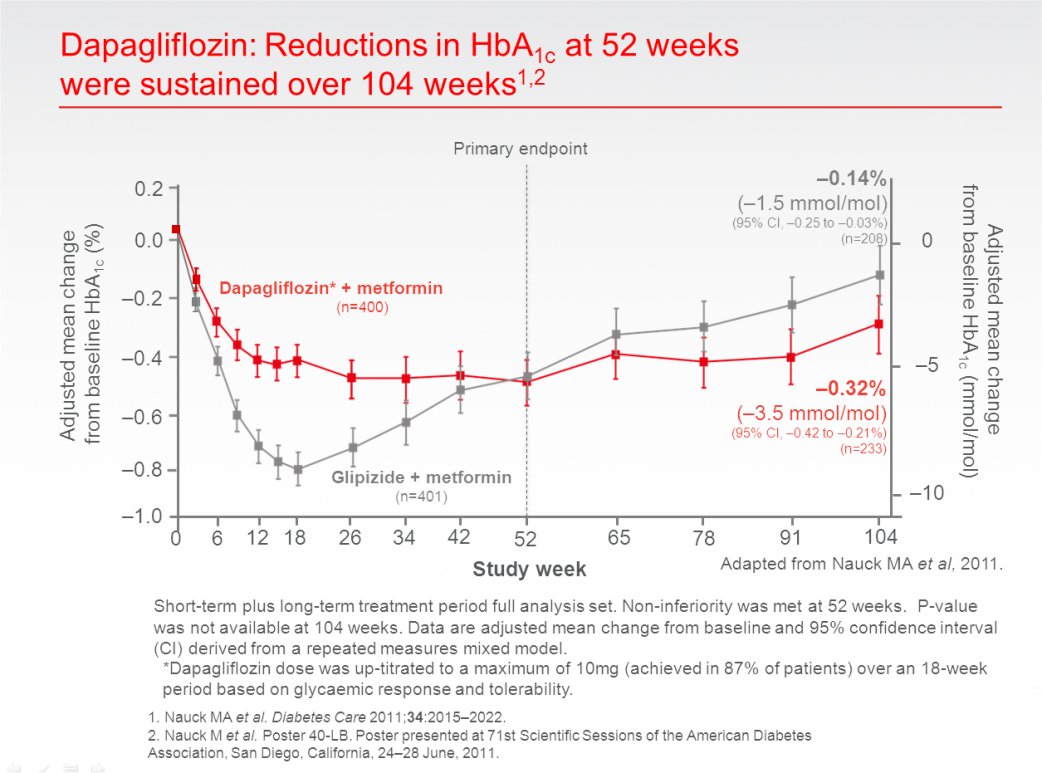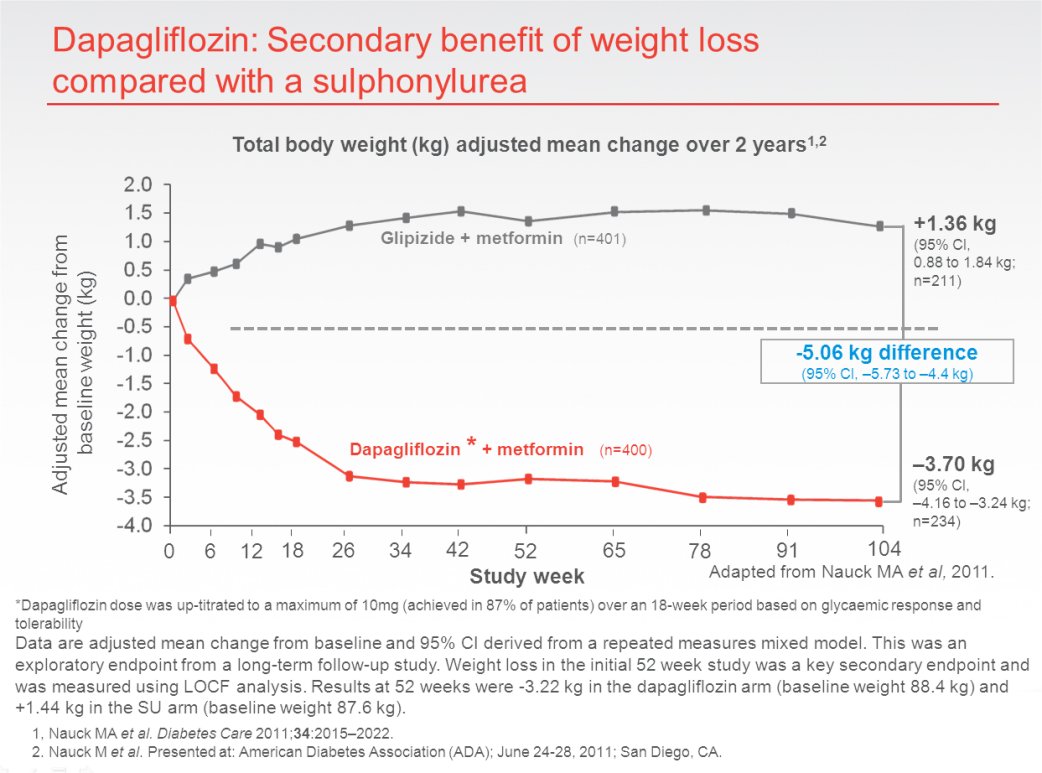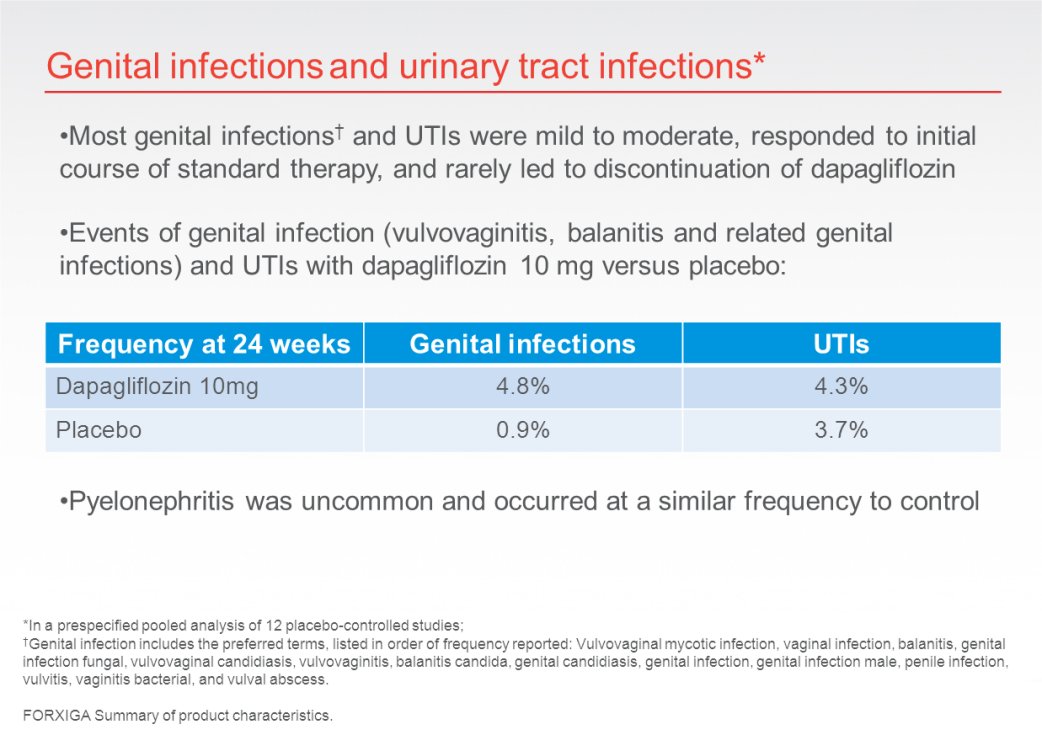|
|
ABCD nationwide dapagliflozin audit on N3
About the ABCD nationwide
dapagliflozin
audit
This audit is particularly important with dapagliflozin being the first
of a new class of drugs for diabetes, the SGLT2 inhibitors. As with the
ABCD GLP1-receptor agonist audits (exenatide,
liraglutide and
exenatide
QW) it may be that patients being treated with the new class in real
clinical practice will be different from those in clinical trials and
outcomes may also be different both in terms of safety and efficacy. As
with the exenatide QW audit, the great step
forward for this audit is that it is
being hosted on N3 - the latest version of NHSnet.
Access the on-line tool for the audit does require the user
to be on N3 – ie in an NHS hospital, GP surgery etc. The
audit launched in September 2014 and has a number of
objectives.
The first data analysis from the audit was undertaken for the ABCD
autumn meeting on November 6, 2015.
Click here to see the output from the audit as it evolves. The names
of all the contributors will be found in the presentation slides and in
the published papers.
The new web-based audit tool on N3
The new audit tool is based on the
exenatide QW audit tool. It is easy to use. Being on N3 it
has optimum security for patient identifiable data with
regard to your own patients, but anonymises the data when it
is utilised in the national audit. There are some special
features
with regard to the data export both for your own local
analysis and for the nationwide analysis. The export now
allows you to choose which data to download for analysis as
well as providing all data. It also allows you to choose to
download the data aggregated to 2 monthly, 3 monthly, 4
monthly or 6 monthly time points. The tool has the
facility to detect data from the same patient entered in two sites (eg
hospital and primary care) and to merge the data when exported - see
centres and sites below.
Structure of the audit – centres and
sites
For this audit the concept of centres and sites is utilised in the same
way as in the exenatide QW audit. Typically a centre might be an NHS Trust.
Sites might be hospitals associated with that Trust, and/or health
centres or GP surgeries in the local vicinity. If set up in this
structure, designated leaders of the local audit would be given access
to download the anonymised data of all the patients associated with the
centre for more powerful local analysis of data involving higher
numbers. Findings so made through such local analysis could be put
forward for further testing on the full national dataset.
Collect
data on-line or via paper forms
The new N3 on-line audit tool is so
easy to use that live data entry in clinic is a real option
to be considered. Otherwise to facilitate data collection
during clinics there are two paper forms which exactly match
the data that can be entered into the audit tool. You can
download and print these forms locally or
order pre-printed data entry forms.
To download the forms to printout for use, use the
following links:
Download first visit data entry form
Download follow up visit data entry form
Non ABCD
members
Non ABCD members are welcome to take
part in the audit and will be given access to the on-line
audit tool when they
register
for the audit.
Register to take part in the audit and access to
the on-line tool
To register for the
audit and
be given access to the on-line tool on the ABCD website on
N3
click here.
Northern Ireland and Worldwide
As Northern Ireland is not on N3, a non N3 version of the tool has been
developed which can allow any country in the world to enrol at no cost
and utilise the facilities. Any country, and centres in the country, may
collect and analyse their own data which will then automatically become
part of worldwide audit. For more information
click here.
Papers, abstracts, presentations, posters
and webcasts emanating from the audit
Click here to see the output from the audit as it evolves. The names
of all the contributors will be found in the presentation slides and in
the published papers.
Further
information
Further enquiries may be made to the ABCD nationwide audits
database administrator of the project,
Melissa Cull |
Register for the
dapagliflozin audit: UK
Register for the
dapagliflozin audit: Northern Ireland and non-UK
Register
simultaneously for ALL 3
SGLT2 audits: canagliflozin, dapagliflozin and
empagliflozin
Access
the on-line tool
(UK: you need to be on N3)
Access the worldwide on-line tool
(Northern Ireland and non-UK)
Dapagliflozin audit objectives
Order
preprinted data entry forms
Download
first visit data entry form
Download
follow up visit data entry form
How
to analyse your data - video
Papers, abstracts, presentations, posters from the audit
Further
information- contact us
Main ABCD homepage
|




